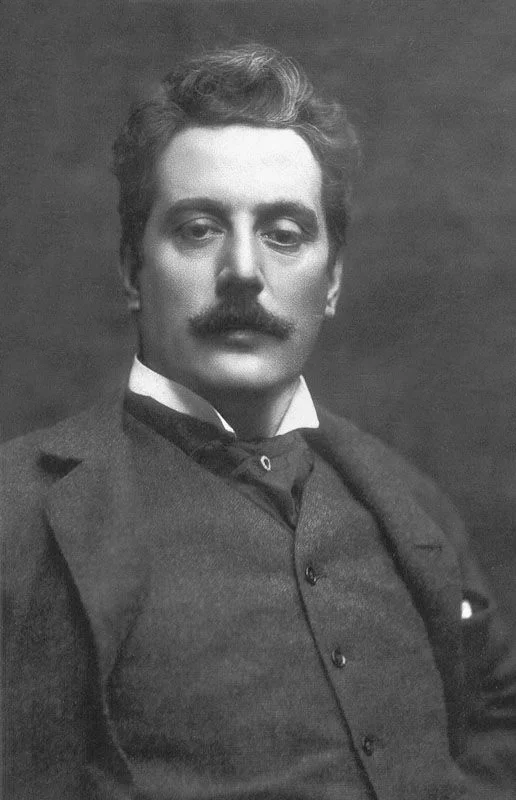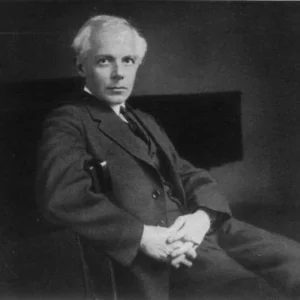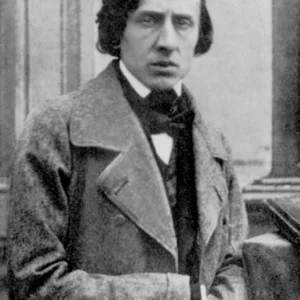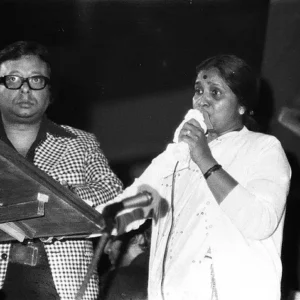Giacomo Puccini, born on December 22, 1858, in Lucca, Italy, is celebrated as one of the greatest composers in the history of opera. Known for his profound emotional expression and lyrical melodies, Puccini’s works have left an indelible mark on the world of classical music. His innovative approach to operatic drama continues to inspire musicians and audiences worldwide.
Early Life and Musical Roots
Birth and Family Background
Giacomo Puccini was born into a family with a rich musical heritage. His father, Michele Puccini, was an esteemed composer and organist at the San Martino Cathedral in Lucca. After Michele’s untimely death when Giacomo was just six years old, his mother, Albina Magi, ensured he continued the family tradition by receiving a strong musical education.
Education and Early Influences
Puccini’s passion for opera was ignited after attending a performance of Giuseppe Verdi’s “Aida” in 1876. This experience profoundly influenced him, leading him to pursue a career in music. He studied at the Milan Conservatory, where he graduated in 1883. His graduation piece, “Capriccio Sinfonico,” received positive acclaim, marking the beginning of his journey as a composer.
Rise to Fame
First Success: “Le Villi”
Puccini’s early success came with his opera “Le Villi,” which premiered in 1884. Initially submitted for a competition, the opera did not win but caught the attention of influential music circles. With the help of supporters, Puccini arranged for “Le Villi” to be performed in Milan, where it was well-received, establishing him as a promising composer.
Breakthrough with “Manon Lescaut”
In 1893, Puccini achieved his first major success with “Manon Lescaut.” The opera’s critical and commercial success solidified Puccini’s reputation as a master of operatic drama. This work showcased his ability to blend emotional depth with memorable melodies, setting the stage for his future masterpieces.
Operatic Masterpieces
La Bohème
In 1896, Puccini premiered “La Bohème” at the Teatro Regio in Turin. This opera, set in the bohemian quarters of Paris, tells the poignant story of young artists struggling with love and loss. Its relatable characters and beautiful melodies quickly made “La Bohème” one of the most beloved operas in history.
Tosca
Following the success of “La Bohème,” Puccini premiered “Tosca” in 1900 at the Teatro Costanzi in Rome. This intense drama, set during the Napoleonic wars, is known for its powerful arias and dramatic plot twists. “Tosca” remains a staple of opera houses worldwide, celebrated for its emotional intensity and memorable music.
Madama Butterfly
Puccini’s 1904 opera “Madama Butterfly” premiered at La Scala in Milan. The opera tells the tragic story of a Japanese geisha’s ill-fated romance with an American naval officer. Despite initial mixed reviews, the revised version became one of Puccini’s most enduring works, featuring the famous aria “Un bel dì vedremo.”
La Fanciulla del West
Premiering at the Metropolitan Opera in New York in 1910, “La Fanciulla del West” marked Puccini’s foray into the American Wild West. Based on David Belasco’s play, the opera features a richly orchestrated score and complex characters. It is noted for its innovative use of musical motifs and its influence on later composers.
Turandot
Puccini’s final opera, “Turandot,” set in ancient China, was left unfinished at the time of his death in 1924. The opera, completed by Franco Alfano, premiered in 1926 and includes the famous aria “Nessun Dorma.” “Turandot” showcases Puccini’s grand, dramatic style and remains a powerful testament to his genius.
Legacy and Influence
Lasting Impact on Opera
Giacomo Puccini’s operas continue to captivate audiences worldwide with their timeless stories and powerful music. His ability to blend traditional Italian opera with the realistic verismo style sets him apart as one of the greatest composers of his time. Puccini’s works are celebrated for their emotional depth, memorable melodies, and dramatic intensity.
Influence on Future Generations
Puccini’s innovative approach to opera has influenced countless composers and performers. His use of leitmotifs, realistic character portrayals, and richly orchestrated scores have left a lasting mark on the world of opera. Composers such as Benjamin Britten and Leonard Bernstein have cited Puccini as an influence, and his operas continue to inspire new generations of musicians and opera enthusiasts.
Recognition and Honors
Throughout his career, Puccini received numerous accolades, including the Order of the Crown of Italy and the Order of Merit of the Italian Republic. His legacy is celebrated through the annual Puccini Festival in Lucca, which attracts opera lovers from around the world to honor his life and work.
Conclusion
Giacomo Puccini’s life and work embody the essence of operatic drama and emotional expression. His ability to convey deep emotion and nuance through his music has left an indelible mark on the world of classical music. From his early beginnings in Italy to his status as one of the greatest composers of all time, Puccini’s journey is a testament to the transformative power of opera.
Puccini’s compositions continue to move and inspire audiences, ensuring that his legacy as the master of operatic drama endures for generations to come. His exploration of lyrical beauty, technical brilliance, and emotional depth remains relevant, inviting musicians and audiences to connect with the timeless beauty of his music.



